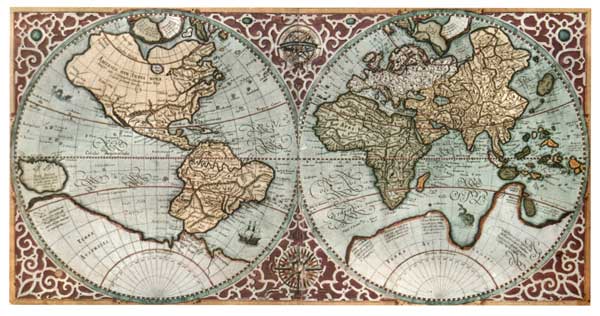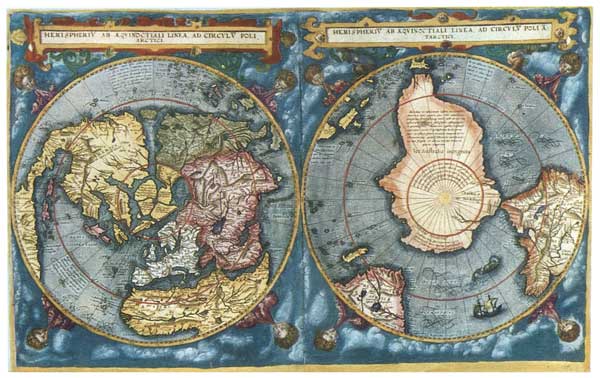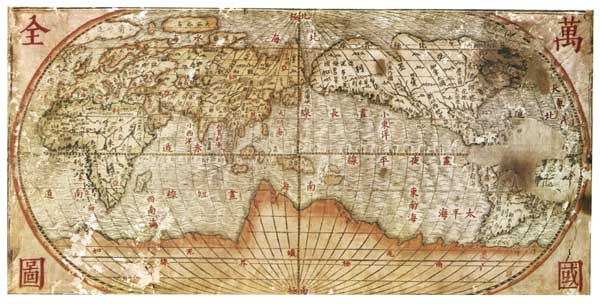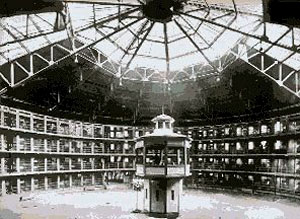|
February 3, 2004
After my little break I started scanning the web for material to start over again. I found this passage most interesting:
"It is a commonplace that, for the most part, Australia inhabited the European Romantic imagination as the dystopia to North America's utopia. But while America had Southey, Coleridge and Blake to laud it as the next pantisocratic Jerusalem, Australia's spiritual patrons were more concerned with it's promise as a penal abyss into which a whole substrate of society might be cast and forgotten. Both were conceived in terms of "use," but the nature of this use differed radically in intention, even if it was similar in its outcomes."
That is about right from living in Australia. Pretty graphic that utopia dystopia duality. America is the sun. Australia is the land of refuse. The arse end of the world. I have been reading Bataille of late and it rubs off.
The above quote comes from p.4 of this text,which I've just stumbled across. The text makes other interesting remarks. On p. 3 it says that the history of the Western encounter with the Australian continent is one that is:
"...consistently found it to be aberrant, repellent, dystopic; the underside of the world, the Antipodes. That is to say, traumatic....In The Fatal Shore, Robert Hughes argues that, at the time of first settlement, Australia (and the Pacific basin, an "oceanic hell") functioned as a type of "geographical unconscious." The name of this dark continent at the time of "discovery" was Terra Australis Incognita: the name of the land-without-a-name."

Mappamondo di Mercatore, 1587 (Londra, British Museum)
The land-without-a-name is the great unknown southern land.

Mappamondo di Gerard De Jode, 1593
the Great Southen land as Terra Australis Incognitais clearer here:

Mappamondo di padre Matteo Ricci, inizio '600 (Milano, Biblioteca Ambrosiana)
For the Dutch explorers who came down from Batavia and mapped the west coast of the Australian continent the land was an unliveable waste land. It was not a place of wealth or fortune.
The standard histories of this Eurocentric vision of the Australian continent say that it was put to rest by the voyages of James Cook. Once discovered the continent was then seen as empty.
The dark continent is spelt out in terms of Freud's unconscious. Thus Australia existed in the European imagination initially as the negative desire of an emergent scientific positivism. This "imagined country," as Hughes says, lurked beneath the rational conscious of the Enlightenment like something "infernal, its landscape that of Hell itself". Hughes says:
"Within its inscrutable otherness, every fantasy could be contained; it was the geographical unconscious. So there was a deep, ironic resonance in the way the British, having brought the Pacific at last to the realm of European consciousness, having explored and mapped it, promptly demonized Australia once more by chaining their criminals on its innocent dry coast. It was to become the continent of sin."
This Hell hole had other negative characteristics:
"Australia, it should be remembered, was first and foremost the destination of those who were considered to have insulted the law of property, it was dispossessed of those who failed to recognise (or even comprehend) the law of property, while it itself was consistently hostile to the very purpose of property– just as it has always been hostile to an aesthetics of the "proper." In this way Australia was also viewed (and often continues to be viewed) as dys-functional: the missionary work of pastoral industry, for example, being constantly undermined by the irrationality and godlessness of the place, manifested in floods, bushfires, droughts, and a native population seemingly immune to the inducements of salvation through toil. These demographic and environmental "disasters" give the appearance of a nihilistic force bent on sabotaging the efficient, serial production of pastoral industry"
Another characteristic of hell was that it was a British penal colony organized on rational lines:
"But as Hughes' comments imply, this Hell was already an operation of the rationalist spirit; it was what Foucault might have called a Hell of "discipline and punishment," a "corrective" Hell in the allegorical form of both Garten der Lüste and paysage moralisé. And in fact, in 1788, the colony of "New South Wales" was inaugurated as the largest scale prison facility in human history, and it at once become the epitome of the Sisyphean contract between labour and redemption enshrined in the Protestant work ethic of those who had instituted it.
The flagrant nihilism of the penal colony extended also, to varying degrees of absurdity, to the project of continental exploration commencing in the 1820s, which most famously exhausted itself traversing one desert after another in search of a mythical ("redemptive") inland sea. In every endeavour, Australia seemed to resist assimilation to the European "idea," although this in itself seems to have been determined a priori, programmed by the "idea" that condemned it as dystopic in the first place."
Australia is definitely an other to Europe and America. It is dystopia. It is it any wonder that many Australians feel alienated from the Europen Enlightenment. The light cast by the Enlightenment that light up the darkness doesn't look all that good from inside a penal colony. It looks more like Bentham's Panopticon:

A more popular conception of Australia as a dystopia is Australia as a cultural desert; one populated by well-fed barbarians, the decendents of convict victims of social justice, basking in a radicalized tradition, and living in cultural darkness. Culture was what took happened overseas in Europe, or rather Britain. What happened in Australia was derivative and second rate. It had a dead centre which was the desert.
Europe was mind (culture) Australia was body (primitive).
An elightened liberal society along social democratic lines was forged in the 20th century but Australia as dystopia lingered on and formed a space from within which one could be critical.
|
